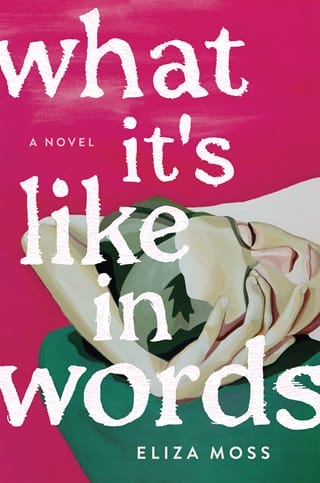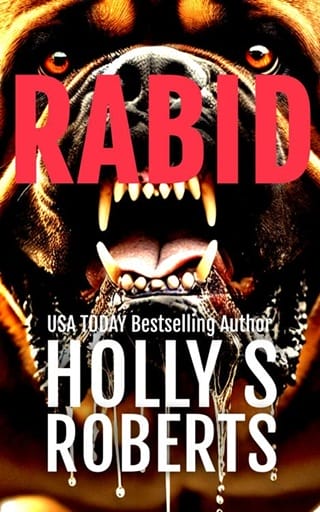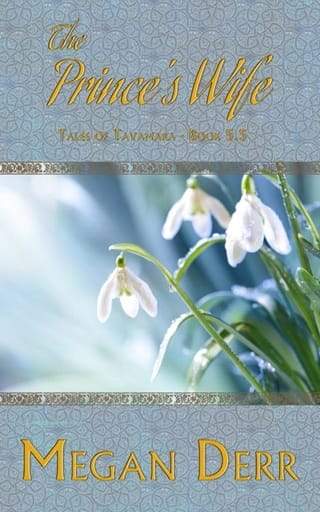Chapter 19
CHAPTER 19
It was a day in late September, an Indian summer—whatever that meant—and Ruth and I lay on the grass in bikini bottoms. The ladies’ pond at Hampstead Heath was busy but not crowded. It’s because it’s just women , Ruth had said when we arrived. All around, limbs were draped over limbs and conversations drifted in the warm air. The pop and hiss of a tin, then Ruth passed me a gin and tonic. The condensation dripped onto my chest as I sipped the cool citrus. She asked when I would hear back from Diana. I explained that it could take three months.
Although it’s been ages since the book launch. God, I can’t believe I might have ruined this.
Ruth scratched my head. Diana knows how long it takes to write a book—don’t worry. I’m just so proud of you! And I know it’s been hard, everything with, you know.
I honestly feel much better.
I know, I can tell.
I turned onto my stomach and rested my head on my forearms, the marks faded and my wrists bare.
I asked Ruth how her job search was going. She said that she had seen a life coach who told her to make a list of things that she enjoyed and things that she didn’t. I told her that she could do anything. Not anymore, she said. We’re approaching thirty. I might have been able to do anything when I graduated, but now? I’m nearly middle-aged—
We are not middle—
—with a CV full of jobs that I didn’t stay at for longer than a month.
I told her that anyone who interviewed her would see how brilliant she was. You’re you , Roo. There isn’t anyone that you can’t talk to or any subject you can’t talk about.
You always do that, she said, tipping her drink into her mouth as if testing how high she could pour it from.
Do what?
Think too highly of me. I’m just a good blagger.
Then, she propped herself up on her elbows and said that Catherine was driving her crazy: Emily is the textbook success story and my parents were both the exception in that they managed to actually earn a living off their art. But I got the most useless attributes from both of them. The personality of an artist without the talent of one.
But she was wrong. Ruth was good at everything. Sometimes it seemed like she refused to own up to that because if she did then she might have to see something through.
I asked Ruth which of my parents she thought I would end up like but she looked uncomfortable. I turned onto my back and imagined that I was on the ocean bed as a plane moved through the blue like a shark. Ruth asked if my breasts had got bigger.
No, sadly, it’s just that time of the month.
She said that every month her left breast swelled to double the size. I told her that she had spectacular tits. She said that the life coach didn’t think that would help with the job search.
Progress for feminism, I said. Did you know that as we get older our body produces two eggs at once as a way of telling us to hurry the fuck up?
Excellent. Our bodies aren’t feminists then.
W E FINISHED OUR TINS , then went for a final swim. The pond was cold, and the smell of wildlife surrounded us. We floated in the sunlight until I decided to go home. Ruth said that she would stay for a bit.
Call you later.
Love you.
Love you .
As I crossed the Heath, I realized that I was completely alone; no dog walkers or picnics. And so I sat in the grass. I picked a dandelion and blew the seeds, but I didn’t have anything to wish for. Perhaps for Diana to represent me? But I wanted her to choose me because I was good and not because I had picked the right flower. I decided to let Ruth know that I was still here, but when I opened my phone, there was a message from him.
The air was sucked from the sky. There he was: the letters of his name. Like seeing a teacher outside of school. Ruth wanted me to change his name to “DO NOT ANSWER,” but I knew that I would never hear from him, and even if I did, after that night at his, I wouldn’t be tempted to answer. Why was he texting now?
Hey, can we talk? I would really love to see you but I understand if you’d rather not xxx
All summer, I wondered how this would feel. But his words didn’t have the same meaning. I was happy. I had finished my book. I was spending time with my best friend. The impulse to jump when he told me to was gone. I didn’t need to text him back. I didn’t want to text him back.
So, what harm would it do if I did?
W E MET TWO WEEKS later at the Church Street entrance to Stoke Newington cemetery. Ruth hadn’t hidden her thoughts, but after a long conversation she did her usual laconic summary: It’s like a nineties horror: the killer has to die twice.
He was leaning against the stone wall, and my heart beat faster. I was unsure when to look up or what expression to have when I did. He was in faded blue jeans and a white T-shirt, with his clavicle visible. His skin was tanned, and the lines in his face were more deeply drawn. I was wearing a floral dress with a denim jacket (Sandra in Practical Magic rather than Nicole). He stood from the wall and held out a white takeaway cup. The first words he uttered were “white Americano” and then: I wasn’t sure if you were going to chicken out.
His voice was exactly the same, and I felt a strum of pain.
Are you glad you didn’t?
I’m not sure yet.
I took the coffee, but I didn’t want to drink it because I didn’t want it to affect my breath. He pulled me into a cautious hug. His aftershave was the same, and his skin was moist. Being close to him again was like opening the door to the beach house—as familiar as unfamiliar. Shall we? We walked into the tangled graveyard and the sun cut shapes through the trees. The paths were narrow, and the ground was uneven, but rather than walking ahead, his hip grazed mine, like he was trying to get as close as possible to me.
He told me that he had finished his book and was finally ready to query. I listened not because I owed it to him but because I owed it to the version of myself sobbing on the bathroom floor. He then thanked me for giving him space. And, honey—
He stopped walking and took my hands.
I do want to be with you.
I didn’t know what to say. Shouldn’t he have known at the time that he wanted to be with me? And when did he realize that the space he said he needed wasn’t about his book but about me? Or had he always known? Because I had known. Even if he hadn’t said the words, he had sat in that coffee shop and told me that he no longer wanted to see me or speak to me or sleep with me.
Did you hear me?
I nodded.
He smiled, eyes pale green in the sunshine, and told me that it was nearly a year since we met.
He seemed different. Or rather, how I seemed to him was different. He was looking at me like he used to and it was intoxicating. Like smelling a perfume that I hadn’t smelled for years or eating the first piece of chocolate after Lent. He used to like me. He used to want me. I wanted to scream at this forgotten feeling, this person back from the dead. My eyes fixed on a vein on his neck, vulnerable and hot in the sunshine. Last week, I’d imagined slashing his skin with a kitchen knife.
Honey, I’m not expecting us to go straight back to how we were, but maybe we could start slowly?
Really?
His lips curled into a half smile. Two truths and a lie, he said. One: I’ve quit smoking. Two: I have a king-sized bed. Three: I’ve really missed you, Enola.
There were two voices in my head. The first screamed at me to leave while I was still strong. Maybe that was what I really owed to the version of myself sobbing on the bathroom floor. But the second was curious, addicted to seeing what I could get him to feel next. At Amy’s wedding, the best man talked about their “tumultuous start.” This could be the real beginning of our love story.
I’ve missed you too.
He kissed me, and it was as easy as falling asleep. It wasn’t earth-shattering; it was normal (like a couple who would go to a self-serve wine bar and order one glass of one wine). With a flurry of happiness, the version of myself from before peeled herself off the bathroom tiles and slipped her hand into his.
We continued strolling through the graveyard and, as I looked at the headstones, so permanent and romantic, I felt an old anger at Mum for not throwing Dad a funeral. I would have liked a grave to put flowers on.
Where did you go? his voice brought me back.
Nowhere.
He smiled at me and I felt like I had come home. He started telling me about a book that everyone had loved, but he had hated, and my eyes caught the gravestone of a couple who died two days apart. The wildflowers around it were dead. A shiver ran up my spine and I thought of a phrase we used to say at school: Someone’s walked over your grave . I squeezed his hand to make sure that he was alive, and he squeezed mine back like he was having the same thought, then pointed to the name on the headstone, laughed, and said: Willy.
 Fullepub
Fullepub 



